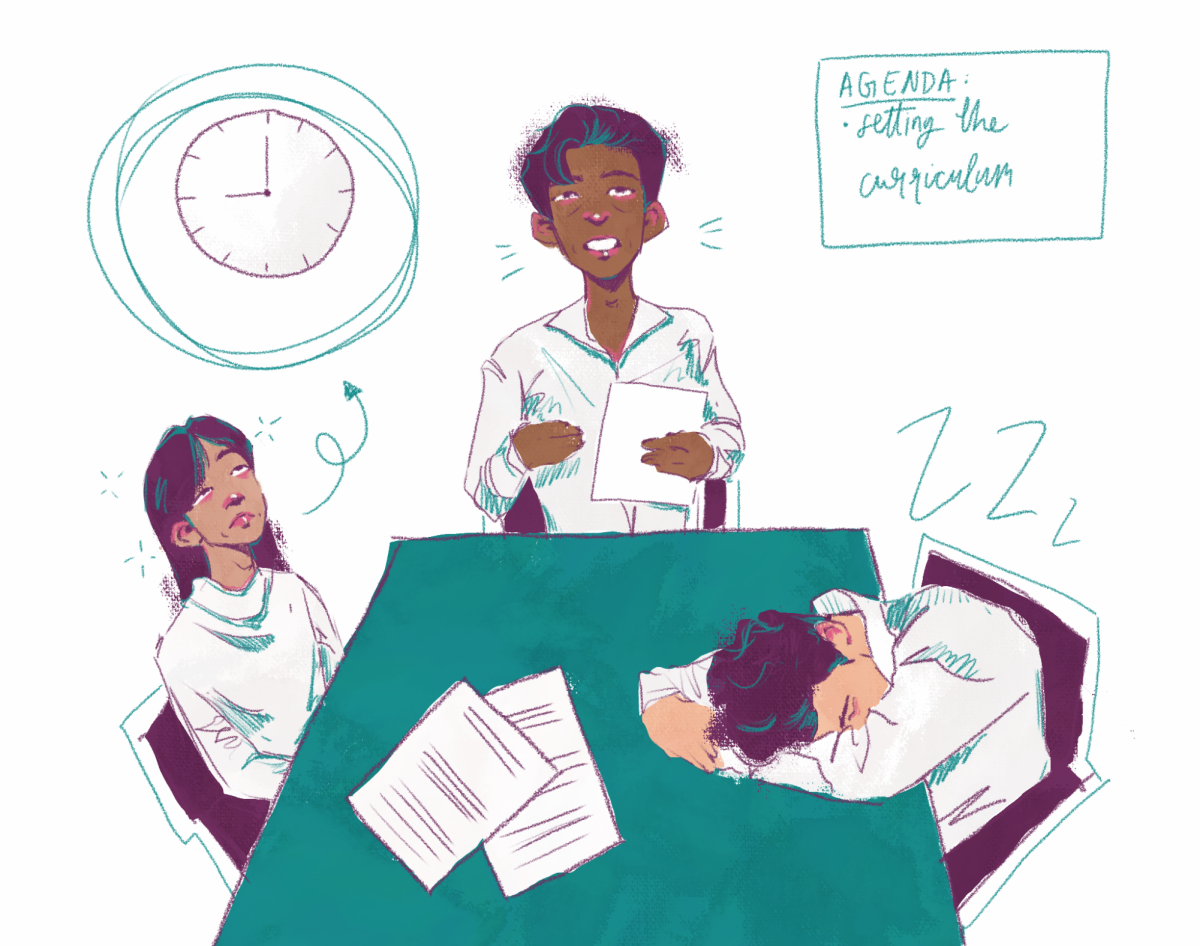When the Associated Student Body held the annual winter rally this February, students and teachers cheered as their teams scored in the faculty-student basketball game. The band played upbeat music in between the action, and the atmosphere was vibrant. The reveal of the prom location at the end of the game brought on another round of cheers from students.
Then the bell rang, and everyone shouldered their bags and left for class. Life went on, completely unchanged by the winter rally, following the trend for every other event ASB has hosted.
Paly has historically had issues with student stress levels, academic workload and mental health. Administrators may conduct rare surveys to ask about students’ mental health and journalism publications print articles about the subject, and yet, the influence the student body has to change the environment at the school is low.
To fix this problem, Paly administration should let students have more say in rules and policies, by allowing ASB and members of the Principal’s Advisory Committee to have a greater leadership role.
Students have little influence in policies affecting their everyday life at Paly, and a good example is the recent bell schedule survey. Many students thought none of the recent options we were presented with were good. None of the schedules presented to us are that different from what we currently have, and none of them will make an impact on student mental health. In fact, unless you blitzkrieg through your makeup tests or are in dire need of help in two classes, what we were presented with is at best a sidegrade to the current study hall system.
The two Paly organizations where students have a direct voice are ASB and the PAC, and these are formed by having students compete against each other for the power to represent their grade.
And yet their impact is minimal. ASB is focused on planning events. Their website displays graduation merchandise and miscellaneous events, and it seems as if the adults at school try to keep them from the decision making process. .
I tried reaching out to the ad leaders of the organizations, asking if this was the intent of the club, but one was sick and the other did not respond to my email.
But at least ASB is taking some action. When is the last time students on the PAC were given the chance to make a difference? Exactly.
I did reach out to Principal Brent Kline for his perspective on the purpose of the PAC and ASB adviser Steve Gallagher for his perspective on ASB, but neither one of them responded to my emails.
Regardless, Paly would benefit from more student voice, beyond student publications, to represent their perspectives on stress, adolescence and growing up in a hypercompetitive environment.
While ASB’s role is to represent the voice of Paly’s student body, I’d like to see them balance the social events they sponsor with events that address the more pressing issues.
For Paly to address its students’ needs, wants and wishes, it needs to first ask students what their needs, wants and wishes are. And it doesn’t seem like administrators are trying to get that information.
This gap leads to a deeper issue: the school does not seem to care about finding out more about its students. And if it does, then it is going about it in an unpublicized way.
When many graduates who go to top-tier colleges say college is more lax than Paly, there is something wrong.
Why are we under more intense pressure as high schoolers than we are as young adults? And why does the school do nothing about it?
Some may argue that adolescents should not have a role in making major decisions for the school. That it is too big of a responsibility, and it would add to our already full plates. That our young, developing brains are too short-sighted and inexperienced to see some glaring pitfalls in our suggested revisions.
Others may argue that placing so much importance on a select few students would give them too much power.
But it is glaringly obvious that a large percentage of students don’t enjoy being in school, and students should get a say in going-ons for an institution they spend four years studying in.
Would all suggestions made by the students be worth it? No. But is it a start? Yes.
The first step in creating change is to allow students to share more ideas about what they want to change. Administrators needs to spend more time gather information about the student body, their wants and their needs.
Then then need to make a bigger effort to give student-centered leadership organizations more of a voice on important issues affecting the student body, even if they don’t agree with the student leaders.
That would be a start.










